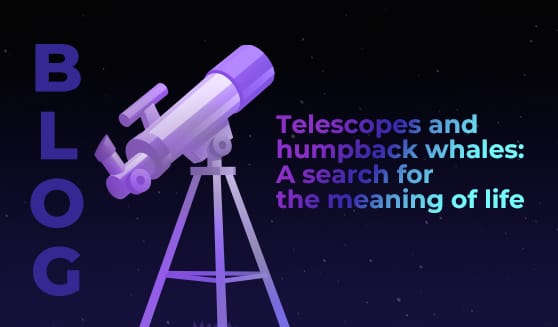
Metaverse is a word that has only recently entered our dictionary.
The word popped up 128 times in company conferences in 2021, compared to only 7 in 2020.
We can credit Mark Zuckberg for bringing the obscure term to common usage. In October 2021, the founder of the social media platform Facebook Inc., said the company is changing its name to Meta, and is reimagining itself as a platform for a virtual world.
In Zuckerberg’s own words, Meta takes the Internet to the next level. The Internet started with words on website, but swiftly moved towards photos, audio, and videos and shared experiences.
“The next platform will be even more immersive — an embodied internet where you’re in the experience, not just looking at it. We call this the metaverse, and it will touch every product we build,” Zuckerberg said in a founder’s letter.
The virtual concept is not entirely new, but Facebook’s backing does give it momentum. Second Life, an application that was launched in 2003, first popularized the idea and remains a real time immersive social space to this day.
But Facebook’s 2.91 billion user base gives the metaverse concept heft.
The idea has also caught fire as it comes amid the rise of digital coins and non-fungible tokens (NFTs) — unique digital assets that can’t be replaced and can be verified and stored using blockchain technology.
In the metaverse, you can buy virtual real estate, virtual high-end brands, while your avatar can enjoy a full-fledged second life, complete with virtual concerts and games and accumulate digital wealth.
The emerging building blocks are seen as the makings of Web 3.0 where our physical and digital worlds blur. Add to this cocktail, the Internet of Things, virtual and augmented reality, blockchains, advanced microchips and cloud computing, and it has the makings of a brand new virtual universe poised for a big bang.
Investors are taking note.
Wall Street bank Morgan Stanley believes luxury brands alone could make an early dent in the universe and become a US$50 billion industry by 2030. Analysts expect the new universe to be a boon for the creative industry, with musicians to fashion designers building businesses around providing goods and services for the space.
REGIONAL PUSH
Companies in the Gulf region are also eyeing opportunities to enter the space.
Saudi Arabia’s NEOM project, a futuristic city rising in the kingdom’s west coast, is ahead of the curve and planning to create a “digital twin” in the metaverse, even as the physical project remains under construction.
Residents will be able to transport themselves into the NEOM metaverse and experience daily life as they would in the soon-to-be physical city, Mansoor Hanif, an executive director at NEOM, told delegates during a Future Investment Initiative Institute conference.
“The metaverse should make humans feel more of a human,” Hanif said.
Meanwhile, 360VUZ, an immersive social mobile app developer, said it was expanding its base in Riyadh to focus on building the latest immersive technologies.
“We are so excited to announce scaling our operations further in Saudi Arabia to build the Metaverse, and are confident that it will accelerate our pace of growth,” according to Khaled Zaatarah, 360VUZ’s founder, said in a statement.
The company already has already secured a deal with Saudi Professional League to offer fully immersive experience to football fans.
BUILDING BLOCKS OF THE METAVERSE
Facebook has been tinkering with the metaverse idea for years, and made an early bet on virtual headset maker Oculus, buying the company for US$2.4 billion in 2014. New iterations of the technology allows users to immerse themselves in games and entertainment.
The social media platform, which also owns the WhatsApp and Instagram apps, is not the only company eyeing the virtual universe.
“Trillions more dollars are being created as we speak and businesses can no longer afford to not be in the know or even part of it.” according to Octaylsis Group, a consultancy.
Tech giants such as Microsoft Corp., chipmakers Nividia Corp. and Qualcomm Inc., ecommerce behemoth Amazon.com Inc. and Chinese IT company TenCent Holdings Ltd. are all expected to be major players in the space.
But gaming companies remain ahead of the industry.
Epic Games, which developed Fortnite, the popular free-to-play Battle Royale game, has already hosted virtual concerts by pop singer Ariana Grande, as a major in-game live music event.
Meanwhile, American rapper Lil Nas X’s performance at an event last year held in Roblox, an online gaming platform, garnered 33 million views.
Management consultancy Deloitte recommends businesses remain nimble and dabble in the virtual space early to prepare for the boom.
“We are already seeing the early signs of this imagined future, although the interconnected network… may be a number of years away,” Deloitte noted in a report. “However, we can see the value of these new interfaces and digital thread intertwining seamlessly for more effective results, both for the individual and the system.” ©








